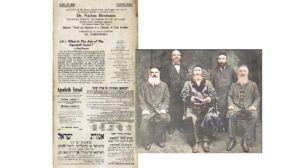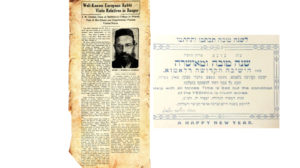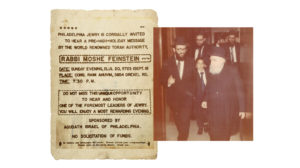To Build an Empire


“My father always wanted us to remember what was happening to be able to tell the world so the world should know of the heinous crimes the Germans committed. He always told us ‘Remember what is happening.’ It was my father’s strong message to survive and tell the world”
I n March 1944 Estusia approached me. She told me that resistance was being organized and that we were in a position to help because we were the only ones with access to powder. Would I be willing to risk the danger?
“Of course I agreed as did two or three other women in the gunpowder room including the forelady. We were 99 percent certain that the Nazis would not let us survive so we wanted to do something.”
Estusia Wajcblum had chosen well.
With her sweet tooth and penchant for mischief Rose Grunapfel learned early on to carefully cover her tracks. Born in Zator southern Poland in 1919 Rose was the fourth of seven children. Her father Reb Shlomo Zalman a Radomsker chassid and member of the town council owned a general store in the center of town.
Knowing his oldest daughter’s proclivities Reb Shlomo Zalman kept a sharp eye on Rose. He allowed her one and only one candy from the store each day too little for youthful Rose. So one day she requested a candy for her younger sister as well. She thought she got away with the ruse — until she noticed her father watching her from the window as she left the store.
Over 70 years later Rose remarked with a rueful expression and a twinkle in her eye how disappointed she was when she realized that she could not devour that second sweet. Rose’s disposition for taking risks and deviating from rules laid the foundation for her heroism in the later years of the Holocaust.
World War II broke out on the cusp of Rose’s 20th birthday. Food formerly in abundance was suddenly scarce. A foretaste of the horrors to come Rose’s younger sister Chayche went missing. “It was like Tishah B’Av in the house ” Rose recounted years later. The ten-year-old returned hours later looking strangely swollen. Oblivious to the havoc she had caused Chayche responded to her family’s harried questions by shaking sacks of flour rice and other commodities out of her clothes.

Throughout her life Rose often referred to her “revenge” against Hitler. But she was not alluding to her sabotage of German bombs or her role smuggling gunpowder. She was speaking of having built four generations of “Yiddishe doros” every single one shomer Torah u’mitzvos
A kind gentile neighbor had secretly given her the supplies after hearing that the Grunapfels had no food in the house. Another neighbor discreetly dropped loaves of bakery bread through their kitchen window.
hese Polish ladies and a few others like them were grateful for the store credit that Reb Shlomo Zalman had extended to them in better years.
Under Arrest
In the early months of the war the Jews of Zator were rounded up daily for forced labor. The Nazis ordered Reb Shlomo Zalman to scrub German army automobiles. He was forced to stand all day knee-deep in water and soon his only pair of shoes were ruined. But shoe ration cards in Jewish hands were contraband.
Rose desperate for a solution remembered how a gentile classmate had always envied the ring she’d received for her bas mitzvah. She bartered her ring for her classmate’s ration card and Mrs. Grunapfel hastily bought new shoes for her husband. The family’s relief was short-lived however. As soon as Mrs. Grunapfel left the shoe store the Polish storekeeper denounced her to the Germans. The Nazis stormed into the Grunapfels’ home and arrested her that night.
With her mother in danger Rose refused to sit by idly. The next morning she snuck out of the house and turned herself in to the Germans in her mother’s place. Her mother was released though not without cost: Rose was sentenced to six months imprisonment in the nearby jails of Cieszyn and Wadowice.
Yet Rose’s first brush with the law had an unexpected benefit. Rose shared a cell with an older Jewish woman who often pretended that she could not finish her meager meal and enjoined her younger roommate to take it. Over half a century later Rose recalled the lasting impact of this woman’s kindness: “She proved to me that v’ahavta lerei’acha kamocha as my parents had taught us can and should be practiced no matter when and where.” (Excerpted from Family First Issue 572)
Oops! We could not locate your form.













